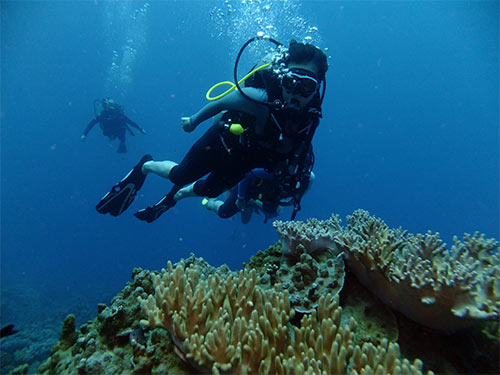Sunscreen is Damaging Our Coral Reefs – Is Oxybenzone a Threat?
Sunscreening is a common practice that many people do to protect themselves from the sun. While it’s important to protect yourself from skin cancer, it’s also critical to think about how your actions affect other living things. Sunscreen has been shown to have harmful effects on coral reefs as well as humans who go diving or swimming in the ocean.
Sunscreen and coral life
The main ingredient in most sunscreens is an oil called octyl methoxycinnamate (OMC), which can harm corals’ ability to form their hard skeleton and coloration. OMC also causes reproductive issues in corals, so it’s important to avoid using any product that contains this ingredient if you want to protect your reef from damage caused by sunscreen use.
The effects of sunscreens on coral reefs
Sunscreening is bad for divers, who risk getting burned by the sun’s rays as they swim in tropical waters and can also cause major damage to corals if they’re not protected properly by using safe-to-use SPF 95+ sunscreen products that are formulated with ingredients that are approved by National Oceanic and Atmospheric Administration (NOAA). The SPF rating indicates how long you’ll be able to stay out on the beach without burning before your skin begins turning red or pink; it varies from 5-50 but anything over 30 should be safe enough if used correctly—and remember: If you’re worried about getting sunburned then don’t do it!
Finally, there’s no doubt about it: Using sunscreen can help protect humans from harmful UV rays but also has other effects on ecosystems like our oceans where we live as well as those who contribute towards their protection efforts through research projects focused specifically around understanding interactions between humans and nature.”
Oxybenzone and It’s Adverse Effects to the Ocean
Oxybenzone is a chemical compound used in sunscreen lotions, cosmetics and other personal care products.
Oxybenzone, a chemical that is used in many sunscreens, is toxic to corals. It has been shown to cause coral bleaching and death. If you want to help the reefs, consider using Reef Relief sunscreen products that do not contain oxybenzone or other harmful chemicals like octocrylene or homosalate.
It absorbs UV light and helps prevent damage to the skin from ultraviolet radiation. Oxybenzone is also used as a preservative in many cosmetic products including sunscreen lotions, moisturizers and lip balms. It’s considered safe for humans at low levels but can cause coral bleaching when it interacts with other chemicals in seawater or sunlight.
Sunscreen and divers
Diving is a very popular activity, especially among people who love the ocean and want to explore the world beneath its surface. However, if you’re going diving with sunscreen on your skin, this can be harmful to corals and other marine life.
Sunscreen blocks out harmful UV rays from penetrating through your skin and into the water around you—the same reason why it’s so important for humans who spend time outdoors (like surfers or hikers) to wear protective clothing as well! But when our bodies absorb chemicals like these into their fluids (like sweat), they can accumulate in our tissues over time. And because there are many different kinds of sunscreens available today—some which contain little amounts of zinc oxide compared with others that contain high amounts—it’s possible that some people may end up using more than necessary during their excursions outdoors without realizing it until later on down memory lane when they look back at old photos taken during those trips years ago…
Sunscreen and the ocean
Sunscreen is not good for the ocean. Its ingredients can kill or harm coral, causing it to bleach and lose color, shape and texture.
Sunscreen in the water can cause your corals to develop white patches that look like algal growths on their surfaces. These patches may appear as soon as a few days after application of sunscreen, but they often develop over several weeks or months after application. The white substance that forms on your corals’ surfaces usually takes away any natural brownish coloration present in their bodies (this is why some species have been known to be “bleached”).
Conclusion
When it comes to coral reefs and sunscreen, there are many questions that we should be asking ourselves. Are you putting sunscreen on your skin? Do you know how much sunscreen is being used? How much of it is actually getting into the ocean? As a result of these questions, there needs to be better regulation on the amount of sunscreens that are being applied by consumers across the world. If we don’t protect our oceans today then tomorrow they’ll be gone forever.








